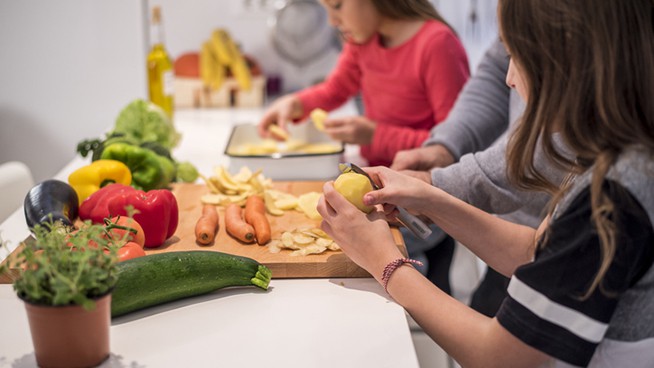6 Anti-Inflammatory Foods to Relieve Muscle Soreness
When it comes to being a better athlete, muscle soreness [and even inflammation] is a normal part of training and the recovery process. Inflammation is the body’s first response to infection or irritation, even when it occurs as a result of overexerting a muscle. One important way to prevent inflammation and counteract muscle soreness is proper eating. Here are six anti-inflammatory foods to incorporate into your diet.
Salmon
Anti-inflammatory agent: the ever-powerful Omega-3 fatty acids
Bonus: Post-workout protein [learn more about protein’s power here]
Try to eat a piece of fish for dinner two to three times a week.
Papaya
Anti-inflammatory agent: an enzyme called papain [learn more about it here] and vitamins C and E
Bonus: Papain helps with protein digestion
Eat papaya [or a juice version] for a mid-morning or afternoon carb booster.
Broccoli [and Most Veggies]
Anti-inflammatory agent: phytonutrients (organic components of plants) [more info here]
Bonus: Nutrient powerhouse, plus loads of fiber
Eat as many veggies as you want! Load up on broccoli and other veggies at every meal.
Extra Virgin Olive Oil
Anti-inflammatory agent: healthy monounsaturated fats
Bonus: Rich in polyphenols, which protect the heart and blood vessels from inflammation
Drizzle one to two tablespoons on vegetables or a protein source.
Blueberries
Anti-inflammatory agent: phytonutrients
Bonus: packed with antioxidants
Enjoy them on your cereal in the morning and/or guzzle some down as a mid-day snack.
Green Tea
Anti-inflammatory agent: flavonoids [get the scoop here]
Bonus: Promotes a healthy heart and metabolism
Drink at any time; try a cup of decaf green tea in the evening.
Check out more suggestions on how to beat muscle soreness with anti-inflammatory foods.
Source: Theconsciouslife.com, ehow.com, webmd.com
Photo: pbase.com
RECOMMENDED FOR YOU
MOST POPULAR
6 Anti-Inflammatory Foods to Relieve Muscle Soreness
When it comes to being a better athlete, muscle soreness [and even inflammation] is a normal part of training and the recovery process. Inflammation is the body’s first response to infection or irritation, even when it occurs as a result of overexerting a muscle. One important way to prevent inflammation and counteract muscle soreness is proper eating. Here are six anti-inflammatory foods to incorporate into your diet.
Salmon
Anti-inflammatory agent: the ever-powerful Omega-3 fatty acids
Bonus: Post-workout protein [learn more about protein’s power here]
Try to eat a piece of fish for dinner two to three times a week.
Papaya
Anti-inflammatory agent: an enzyme called papain [learn more about it here] and vitamins C and E
Bonus: Papain helps with protein digestion
Eat papaya [or a juice version] for a mid-morning or afternoon carb booster.
Broccoli [and Most Veggies]
Anti-inflammatory agent: phytonutrients (organic components of plants) [more info here]
Bonus: Nutrient powerhouse, plus loads of fiber
Eat as many veggies as you want! Load up on broccoli and other veggies at every meal.
Extra Virgin Olive Oil
Anti-inflammatory agent: healthy monounsaturated fats
Bonus: Rich in polyphenols, which protect the heart and blood vessels from inflammation
Drizzle one to two tablespoons on vegetables or a protein source.
Blueberries
Anti-inflammatory agent: phytonutrients
Bonus: packed with antioxidants
Enjoy them on your cereal in the morning and/or guzzle some down as a mid-day snack.
Green Tea
Anti-inflammatory agent: flavonoids [get the scoop here]
Bonus: Promotes a healthy heart and metabolism
Drink at any time; try a cup of decaf green tea in the evening.
Check out more suggestions on how to beat muscle soreness with anti-inflammatory foods.
Source: Theconsciouslife.com, ehow.com, webmd.com
Photo: pbase.com













